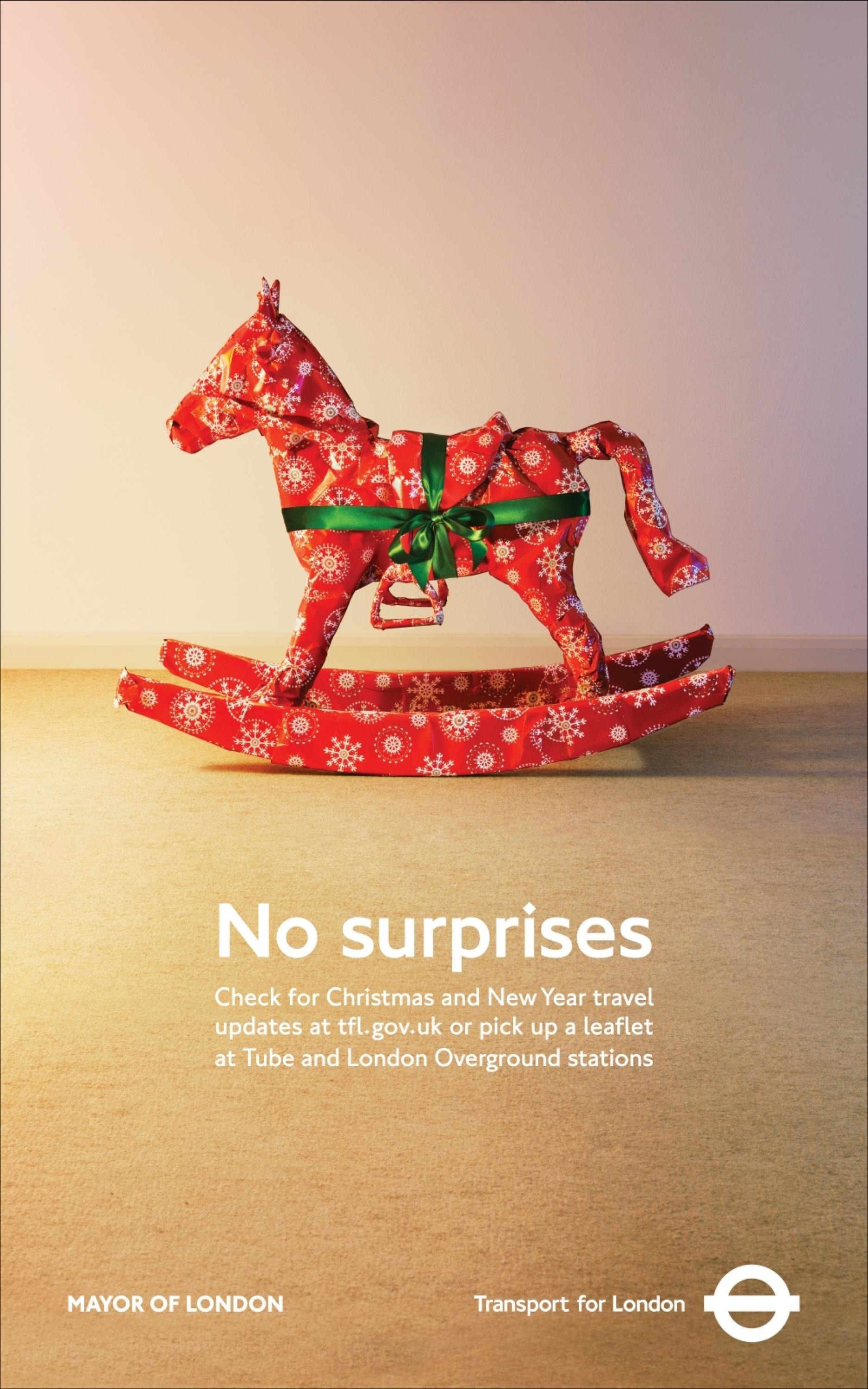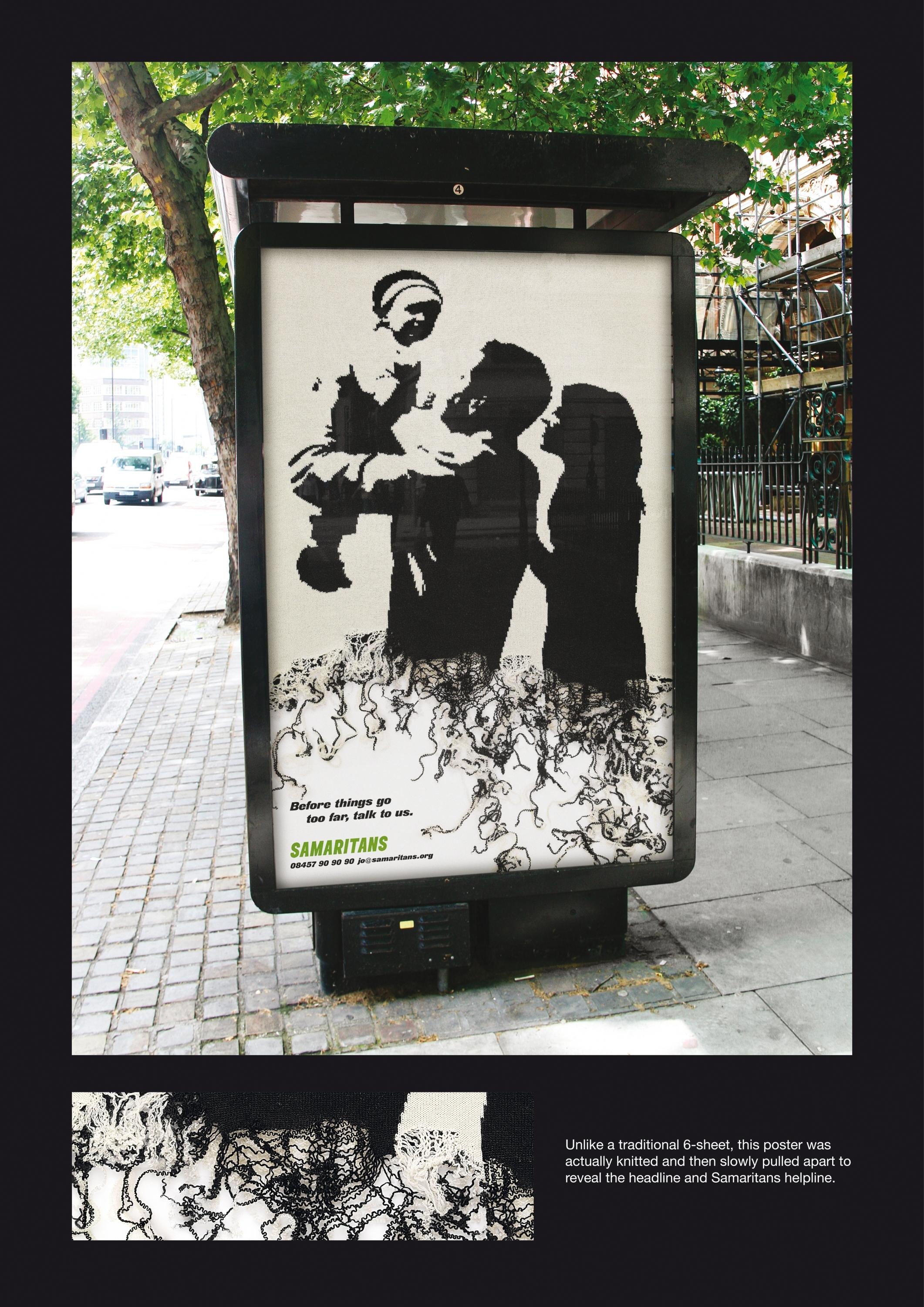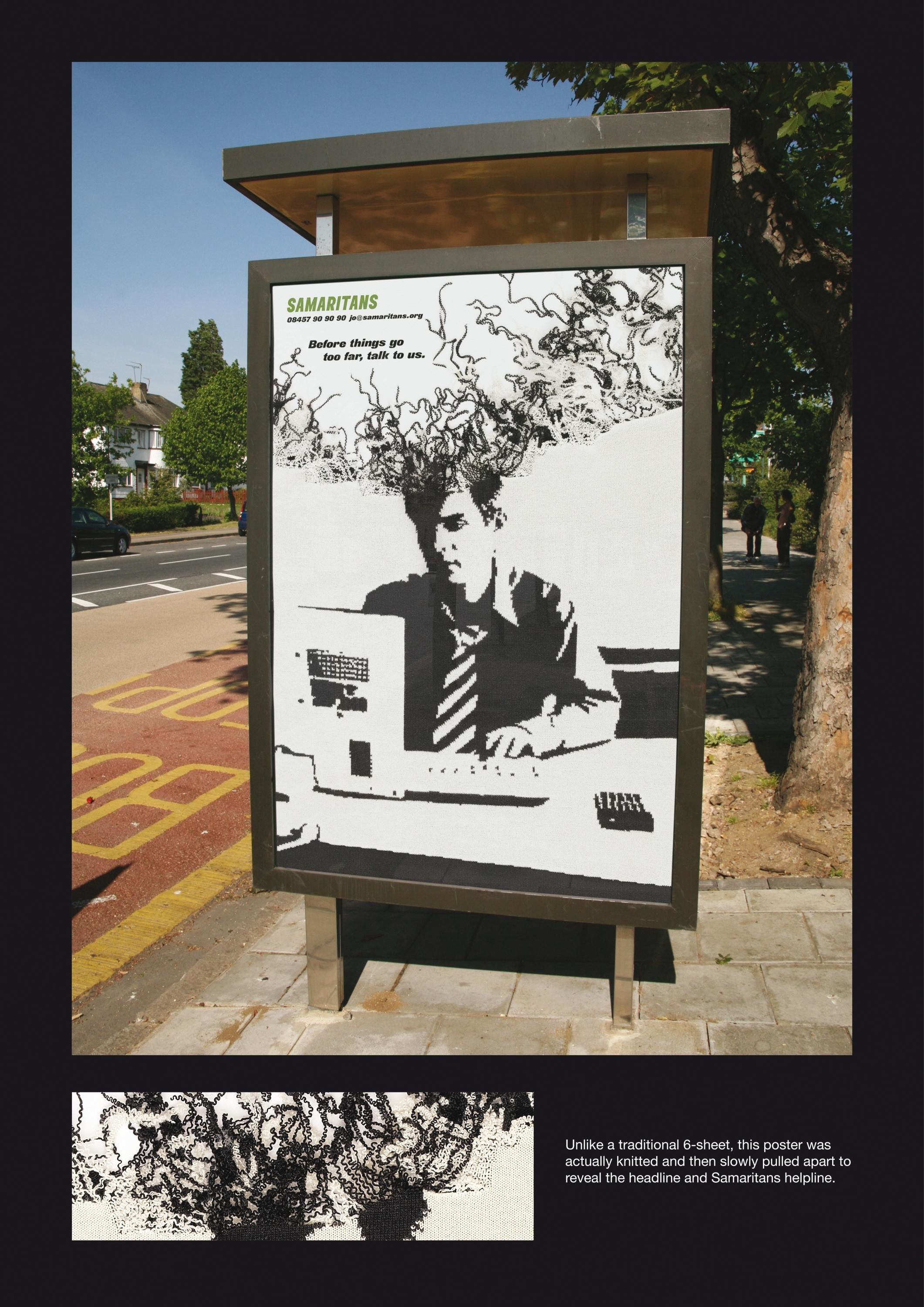Cannes Lions
Samaritans 'Real People, Real Stories'
MOTHER, London / SAMARITANS / 2019
Overview
Entries
Credits
Overview
Background
Every year, thousands of people take their own lives in the UK. This issue poses a particular problem for rail industry because railways are a long-established location for suicide – each death by rail costs the organisation over £200K in delays, reimbursement and staff counselling. This made them the perfect partners for Samaritans: an emotional support line for those struggling to cope (and originally launched in 1953 as a “999 for the suicidal”). Suicide is the biggest killer of men under 50, with working-class men being the most at-risk group. Samaritans came to us with a clear brief: alleviate the pressure on national rail by encouraging C2DE men to phone Samaritans. Relying almost entirely on donated poster sites on Britain’s train stations, we needed to find a way to get through to these vulnerable men and prompt them to reach out when they were struggling to cope.
Idea
Our creative approach clarified the task for the creative team – we needed to create a poster campaign that delivered a moment of hope directly to the people suffering. We knew this audience found it difficult to talk and weren’t very receptive to company messages. So we decided to get our creative from the horse’s mouth: other men who had experienced suicidal thoughts or behaviours. We spanned the length and breadth of the country to collect messages of hope from men who really understand the headspace of our audience – asking them to write short notes describing what they would have wanted to hear in their moment of crisis.
Strategy
When we dug a little deeper into the category, we discovered an interesting theme: most charity comms aren’t talking to sufferers. Traditionally, they are addressing policy-makers and donors: i.e. people like us. This led us to our first insight: this campaign needed to address sufferers directly. The objective was behaviour change so interrogated the journey people went on to reach the point of crisis. Cue our second big insight: suicide is a planned behaviour. Off the back of this, we created a 3-phase behavioural model (‘think’, ‘plan’, ‘act’), each with its own messaging and media (donated platform posters falling into ‘act’). We had our creative approach: talk directly to the people who were suffering and our comms approach: tackle the behaviour in three-stages to both react in the moment of crisis (‘act’) and intervene before that moment (‘think’ and ‘plan’).
Execution
Samaritans got in touch with men who had previously struggled with severe depression and suicide attempts and ask them to handwrite in their own words messages that would inspire those currently suffering, messages that they would have themselves liked to hear as they were in a dark place. We then simply curated their handwritten messages and used them practically as such on our posters, creating an authentic and powerful campaign coming straight from real people, a genuine human connection.
Outcome
- More than 25 million impressions
- 600 visitors on campaign page in three days after the launch
- Anecdotal evidence that one person was already helped:
- We have anecdotal evidence that this campaign convinced one person to reach out for help
Similar Campaigns
12 items







